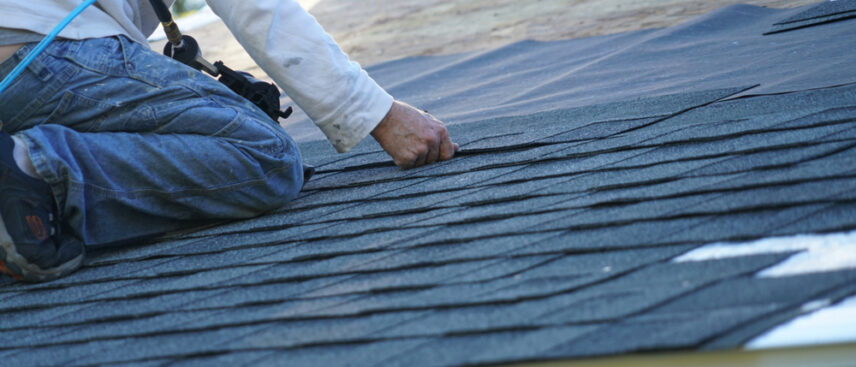Preserving the look, functionality, and lifespan of your roof doesn’t end with the initial installation. Keeping your roof in tip-top shape for decades to come requires regular maintenance and prompt repairs. Some of the most popular and important roofing services are described below.
New Roof Installation
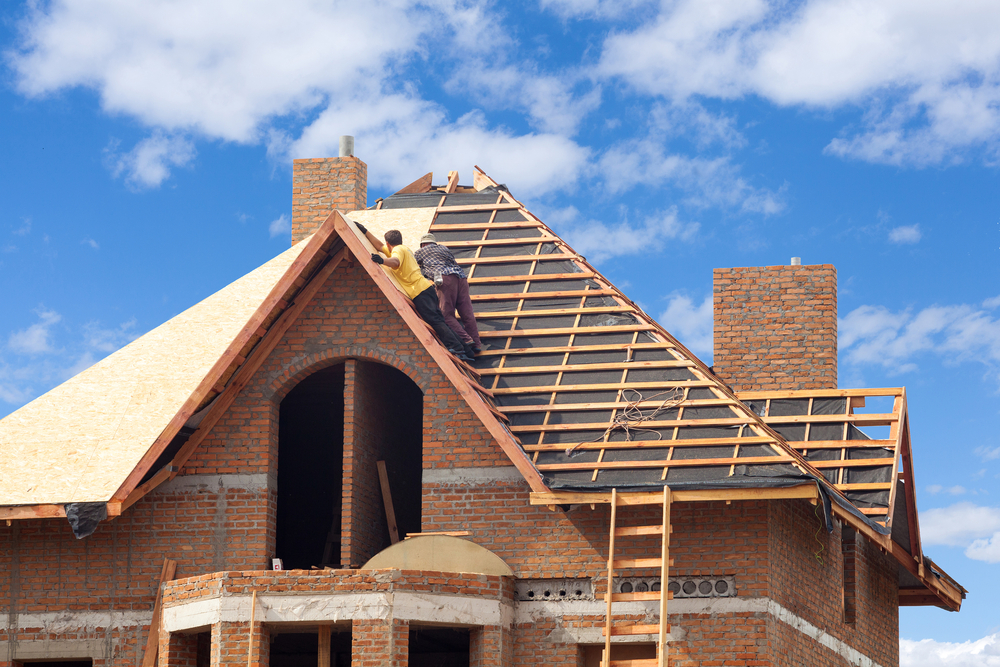
When building a new home or completing a major renovation, new roof installation is an important consideration. Roofing contractors can provide input on the recommended style, pitch, and materials for your new roof. These professionals also manage the ordering of supplies, attaining the proper permitting, prepping the project site, building the roof, and completing an inspection of the finished project. The new roof installation follows a precise, multi-step process that takes an average of one to seven days:
- Selecting materials (completed up to two months in advance)
- Prepping the job site
- Installing roofing materials
- Installing the flashing
- Installing the ventilation system
- Cleaning up the job site
- Inspecting the new roof
- Finalizing the documentation and warranty (provided to homeowner after project completion)
How Much Does New Roof Installation Cost?
The average cost of a new roof varies based on the selected material and style of the roof:
- Average cost: $10,000
- Premium tiles and complex roof designs: $50,000 or more
- Average price range: $8,500 to $14,500.
Learn more about new roof installation.
Roof Repair and Restoration
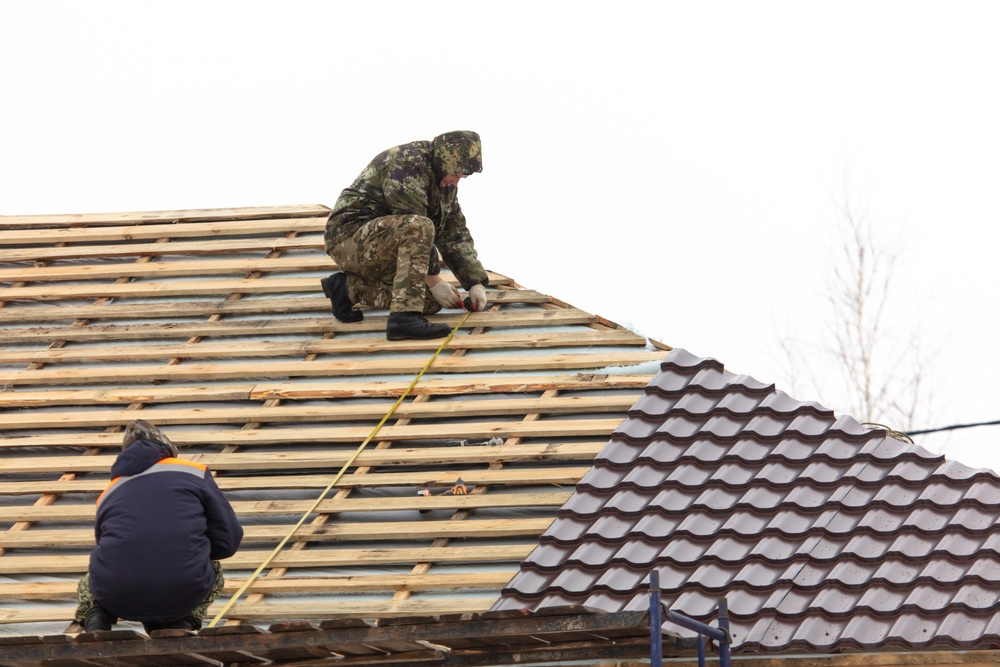
If your roof needs repairs or restoration, roofing contractors can assess the damage, recommend repairs, and complete the necessary restoration of the roof. Minor repairs typically involve leaks, damaged or missing shingles, holes, pooling water, or damage to the flashing. Major repairs may include water damage, electrical problems, roof sagging, significant damage to the flashing or chimney. Regardless of the issue, roofing contractors follow a similar process to repair the issue:
- Inspecting the roof to assess damage
- Making recommendations for repairs
- Providing an estimate
- Ordering materials for the repairs, if necessary
- Completing the repairs and ensuring the roof meets safety and code standards
- Performing a final inspection and required documentation
How Much Does Restoring a Residential Roof Cost?
Roof repair costs vary depending on roof size, roof pitch, roof features, location, and time of year:
- Typical price range: $150 to $8,000
- Average roof repair cost: $1,150
Note: If the roof is under warranty, repair costs may be covered in part or in full.
Learn more about roof repairs.
Emergency Repairs and Storm Response
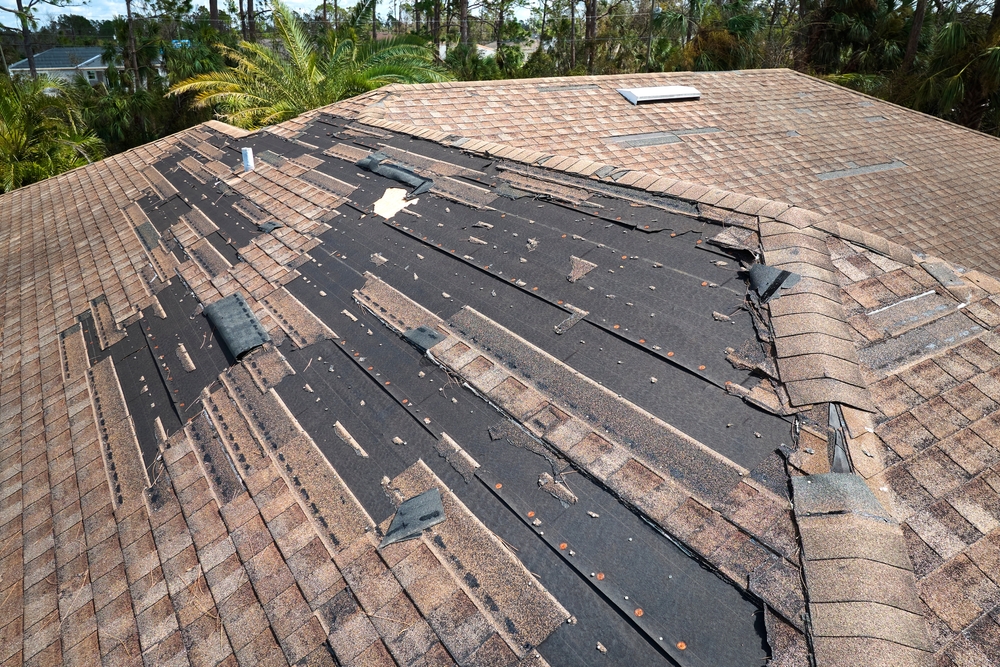
If your roof suffers sudden damage due to wind, rain, trees, pests, or fire, roofing contractors can provide emergency repairs. Many roofers offer 24/7 emergency repair services. Repairs are considered an emergency if the home’s interior is exposed to the elements or is at risk of major damage due to the volume or location of water entry. These situations require the following steps for emergency response:
Homeowner action steps:
- If possible, cover the exposed area with a tarp, either from the exterior or interior. Place buckets in areas that may continue to leak.
- Contact your homeowner’s insurance representative.
- Contact a roofing contractor for emergency repairs.
Roofing contractor action steps:
- Assessing the damage
- Making immediate temporary repairs to prevent further damage
- Providing a quote for full repairs
- Scheduling and completing full repairs
- Inspecting and documenting repairs
How Much do Emergency Roof Repairs Cost?
The cost of emergency repairs depends on a number of factors, including the roof type and the scope and type of damage:
- Typical price range: $250 to $15,000
- Typical cost to repair wind-damaged few asphalt shingles: $250
- Structural repair for fire-damaged roof: $15,000 on average.
Roof Replacement
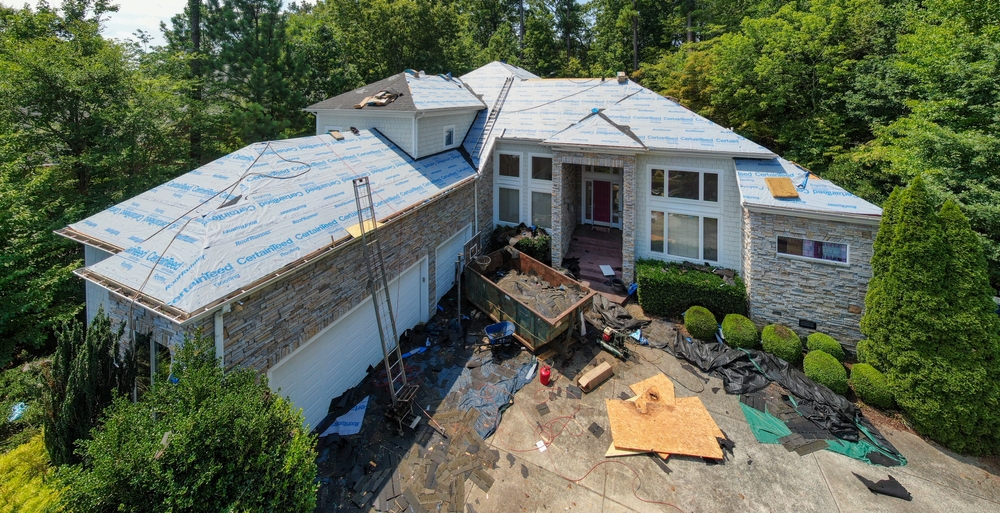
If you notice cracked or curled shingles, missing shingles, or water damage inside your home, it may be time for roof replacement. A roofing contractor can inspect your roof and determine if repairs are sufficient to correct any problems or if your roof needs to be replaced.
If roof replacement is necessary, the contractor will take the steps required to prep your home for a new roof, order the necessary supplies, remove the old roof, and install the new roof. This process typically happens in three phases. The project (work) phase usually lasts three or four days.
- Planning Phase
- Choose a contractor
- Contractor obtains necessary permits
- Homeowner selects desired color/style and contractor orders materials
- Project Phase
- Materials are delivered to the home
- Roofing contractor notes damaged areas and preps for the project
- Old roof is removed
- Any compromised roof decking is replaced
- New roof is installed – including the drip edge, water and ice shields, underlayment, flashing, shingles/tiles, and ventilation
- Post-project Phase
- Clean-up process is completed
- Roofing contractor performs a final inspection of the new roof and provides required documentation
How Much Does a Roof Replacement Cost?
Roof replacement costs vary greatly depending on materials, roof size, roof pitch, and other factors.
- Average cost of roof replacement: $10,000–$11,000
- Average cost for a basic asphalt shingle roof replacement: $6,000
- Average cost for a premium clay tile roof: $50,000
- Average price range: $5,700-$13,000
Learn more about roof replacement.
Roof Inspections
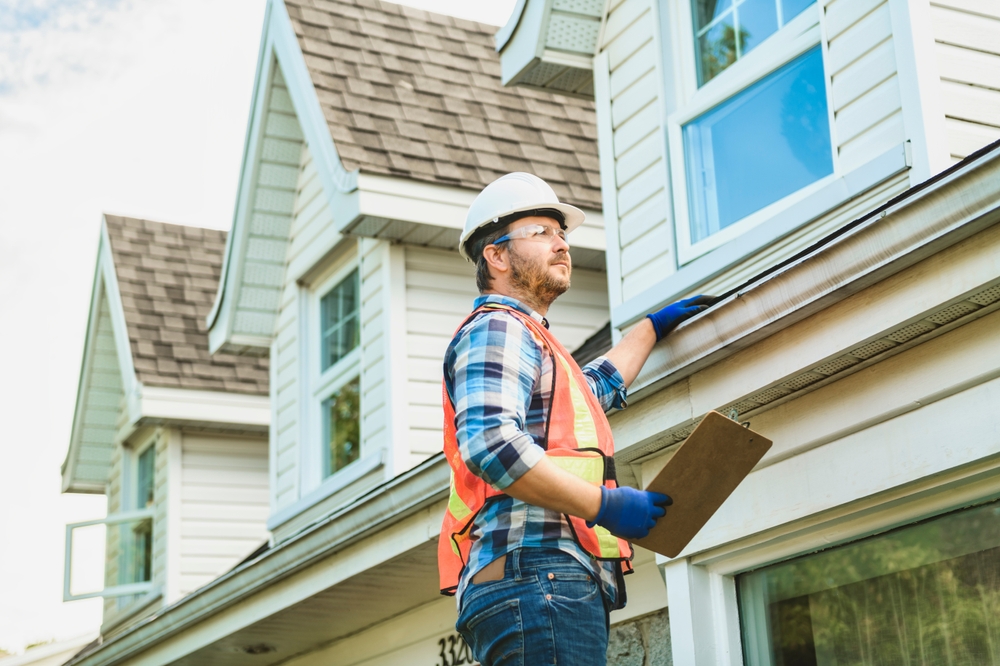
A roof inspection determines the current condition and performance of your roof. The inspector checks the structural support, roofing materials, and interior of the home to identify any signs of concern and recommend any necessary repairs. Homeowners should schedule a roof inspection on an annual basis, as well as any time they suspect roofing issues and before buying a home.
When you schedule a roof inspection, you can expect the following process:
- Inspector examines every component of the roof including
- Structural supports
- Roofing materials
- Interior ceilings and walls
- Inspector may perform any of the following: physical inspection, drone inspection, and/or infrared inspection
- Inspector provides report, noting any areas of concern
- Inspector recommends repairs, if needed
How Much Do Roof Inspections Cost?
Roof inspections vary in cost depending on the type of inspection, size and steepness of the roof, and the time of year:
- Average cost of traditional inspection: $100-$300
- Average cost of drone inspection: $150-$400
- Average cost of infrared roof inspection: $400-$600
Note: Roofing contractors may perform free inspections if they are providing a quote for roof repairs or replacement.
Learn more about roof inspections.
Roof Ventilation
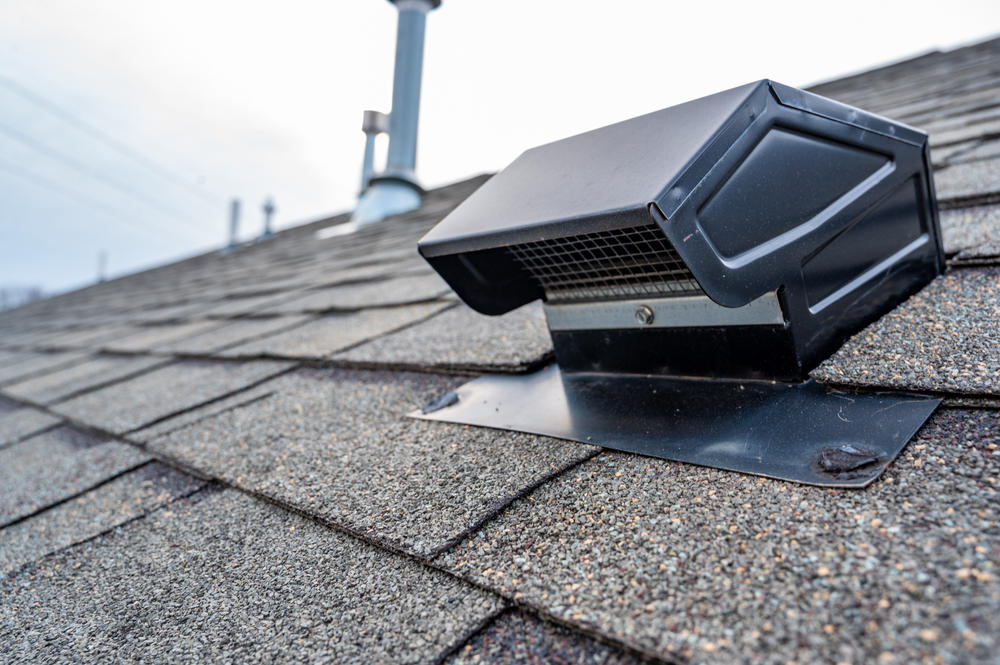
Roof ventilation services include the installation of ventilation systems and components, replacement of existing materials, and repairs to damaged ventilation systems. These systems balance the air flow in the home and protect the roof and interior from moisture, mold, ice dams, and excess heat. Optimal ventilation is crucial to prevent damage and extend the life of the roof. Common ventilation components include box vents, ridge vents, gable end vents, wind turbines, and power vents.
If you contact a roofing contractor for roof ventilation services, the contractor can take the following steps:
- Assessing the ventilation conditions of the roof and home
- Determining the best ventilation solutions
- Recommending any necessary repairs or installations
- Completing the approved projects, to include
- Replacing ventilation materials
- Installing appropriate systems
- Inspecting completed ventilation system and providing required documentation
What Does Adding Roof Ventilation Cost?
The installation of a roof vent costs an average of $500. Various ventilation installations typically range from $200 to $1,000.
Learn more about roof ventilation.
Roof and Attic Insulation
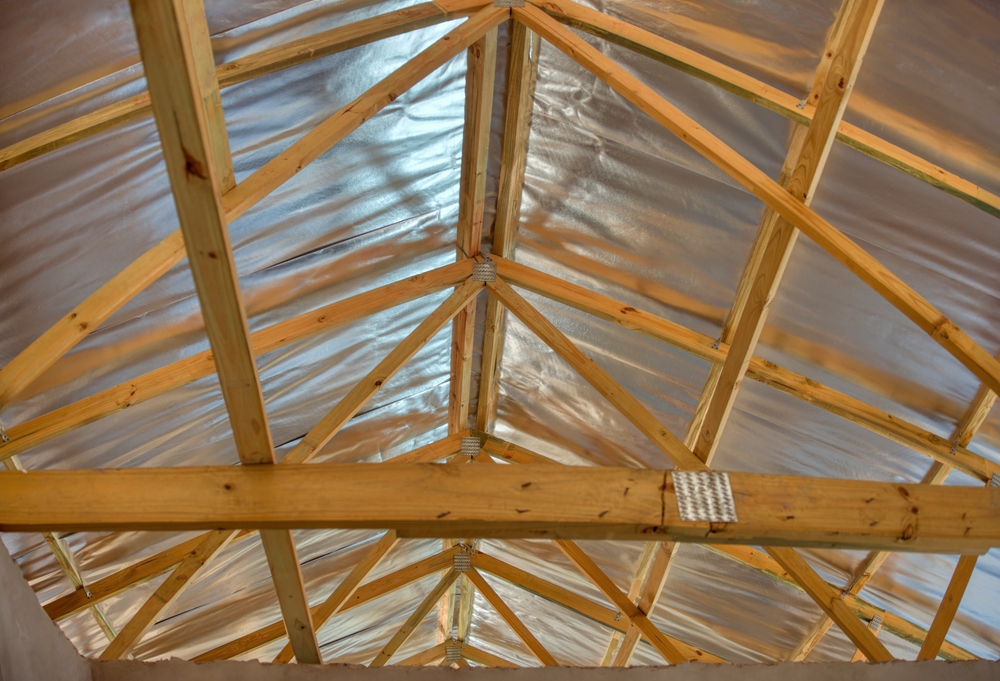
Proper roof and attic insulation helps prevent roof damage and improve the heating and cooling of the home. Roofing contractors can install insulation in a new space, add insulation to an existing space, or improve coverage in an already insulated area. Insulation options include batt, blown-in, and spray foam insulation.
Typical roof insulation services involve several key steps:
- Assessing the condition of the current insulation and the available space for new insulation
- Determining the insulation thickness required to meet regulations and homeowner goals
- Choosing new insulation type
- Installing new insulation, including
- Donning protective gear
- Sealing up any air leaks and holes from light fixtures and piping
- Applying the insulation per manufacturer specifications and regulations
- Installing roofing insulation along the rafters, joists, and soffits
- Installing attic insulation, including attic floor coverage
- Providing documentation that indicates the new insulation R-value of the attic/roof
How Much Does Roof Insulation Cost?
Insulation costs vary according to insulation type and the size and accessibility of the space:
- Average insulation materials cost: $0.50-$1.50 per square foot
- Average installation costs: $2.25 per square foot
- Typical price range for roof/attic insulation project: $1,500-$6,000
Learn more about roof and attic insulation.
Solar Panel Installation
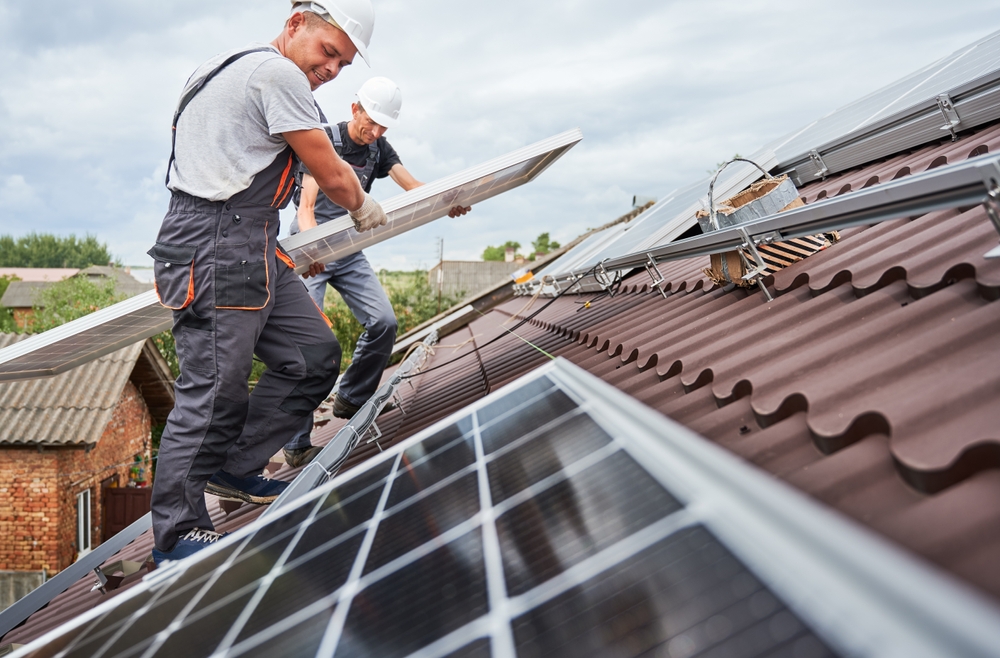
Roof-mounted solar panels attach directly to the roof of the home. Roofing contractors can install new solar panels in an existing roof, replace old solar panels, or build a new roof that features solar panels. These professionals can also provide information on the benefits and incentives of solar panel systems, permitting and regulations in your area, and important considerations based on your roof type.
Solar panel installation typically involves the following process:
- Assessing for solar panel compatibility with your roof
- Selecting the solar panel size appropriate for the project, based on electricity needs, available sunlight, and system orientation
- Obtaining any required permits
- Ordering materials, if necessary
- Installing solar panel(s) and accompanying materials, positioned to maximize daily and seasonal solar energy, including the following components
- Racking system
- Solar Panel
- Heat Sink
- Charge Controller
- Battery Bank
- Energy Meter
- Completing electrical inspection
- Connecting to electrical panel
- Advising homeowner of any incentives they qualify for with the new solar panel system
- Providing final assessments and required documentation
How Much Does it Cost to Install Solar Panels?
An average residential solar panel system installation costs around $25,000. The typical price range for a 5kW system is between $18,000 and $36,000. Government tax incentives may reduce the final cost.
Waterproofing, Sealing, and Leak Repair
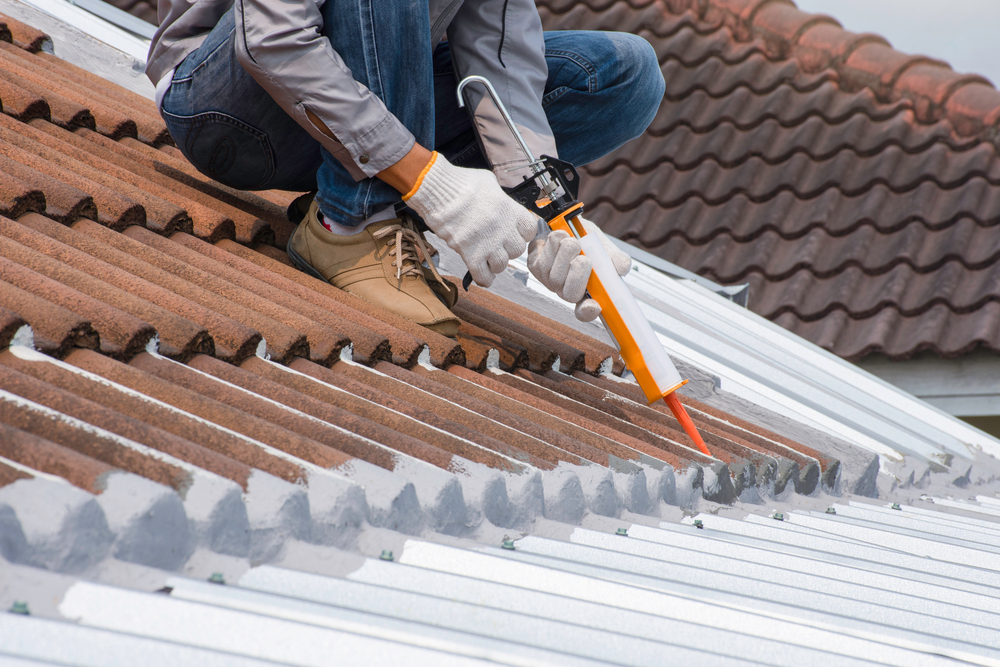
Storm damage, wear and tear, debris accumulation, and improper installation can all cause roof leaks. If you suspect that your roof may be leaking, a roofing contractor can provide an inspection and track down the source of the leak. Based on these findings, the contractor can recommend the best solution, such as waterproofing, sealing, and/or leak repair.
Waterproofing involves applying a water-resistant membrane to the roof that adds a layer of protection. This liquid-applied layer prevents water damage and adds to the roof’s longevity. It penetrates the surface and creates a long-lasting bond that repels water. Sealing the roof is similar to waterproofing, but the sealant material is designed to fill cracks and gaps to create a water barrier in areas where water may easily enter.
The steps to complete these services vary, based on the cause and type of leak issues you are experiencing. However, roofing contractors follow a similar process to complete these projects:
- Inspecting the roof to determine the project needs
- Consulting with the homeowner and providing an estimate for recommended solutions
- Removing any damaged materials
- Installing new materials
- Applying waterproofing or sealant materials, if needed/desired
- Performing a final inspection and providing required documentation
How Much Does Leak Repair Cost?
The cost to remedy leaks varies based on the type of roof, roofing materials, and complexity of the repair:
- Average cost of sealing or waterproofing costs: $1,400
- Average price range for sealing and waterproofing: $500-$2,300
- Average leak repair price range: $150-$1,500.
Gutters & Downspouts
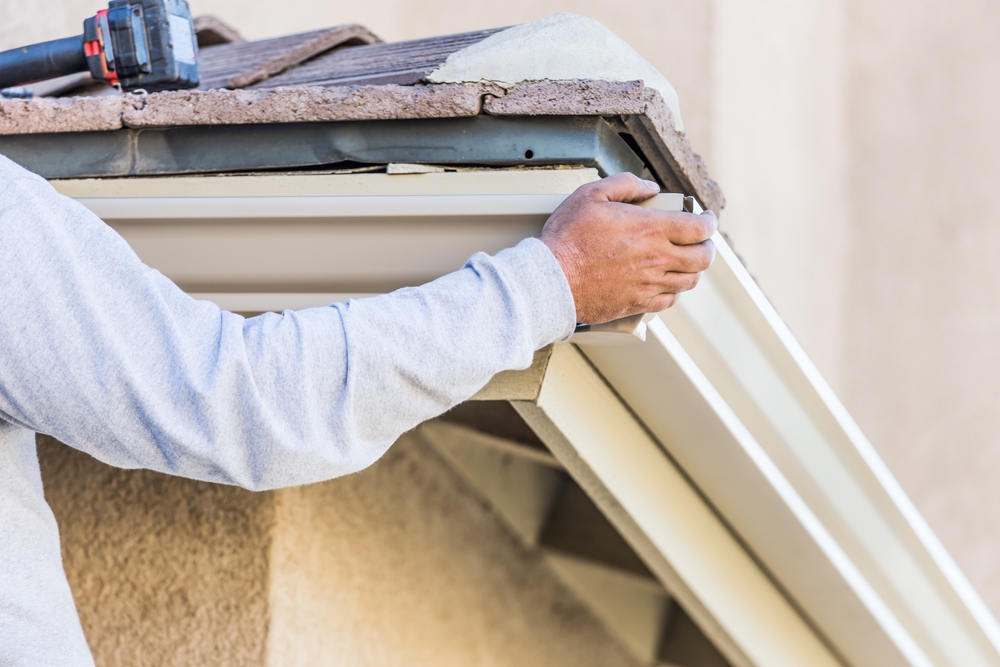
Gutters and downspouts provide a crucial drainage system for your roof. This system channels water to direct it off your roof and away from your foundation. If this system is damaged, leaking, or clogged, your home can incur water damage. Roofing contractors can provide professional installation, repairs, and cleaning of your drainage system to prevent this type of damage.
Gutter Installation
If your home does not feature a gutter system, or if you notice your gutters are sagging or damaged, you may need new gutter installation. Roofing contractors can remove old gutters and securely install new ones to ensure effective drainage and protect your property. This typically involves a four-step process:
- Assessing your property to determine optimal gutter and downspout solutions
- Removing any old gutters and prepping the area for the new materials
- Measuring and cutting gutters to fit your roofline
- Attaching gutter sections, using appropriate brackets and ensuring proper slope for water flow
Gutter Repair
Gutter damage must be addressed immediately to safeguard your home’s landscaping, foundation, and interior. Damaged sections or leaks significantly impair water flow and can lead to water damage. To repair gutters, roofing contractors use a four-step method:
- Identifying and removing damaged gutter sections
- Repairing damage by resealing seams, replacing broken brackets, and patching holes
- Reinstalling and testing the repaired system
- Inspecting the completed work and cleaning up the jobsite
Gutter Cleaning
Regular inspection and cleaning of gutters is an important part of ongoing roof maintenance. Clogged gutters cannot function as designed, which leads to damage on the roof and inside the home. Roofing contractors can safely and efficiently perform this service in four steps:
- Inspecting the gutter system to identify debris buildup and clogs
- Removing obstructions from the gutters and downspouts
- Flushing out debris from the drainage system
- Inspecting entire system for signs of wear or damage that should be addressed
How Much Does Gutter Installation Cost?
The cost for gutter services varies based on the size of the home, materials chosen, and extent of the repairs or cleaning required:
- Price range for gutter installation: $1,300-$3,700
- Average cost of gutter installation: $2,200
- Price range for gutter repair: $150-$650
- Average cost of gutter repair: $390
- Price range of gutter cleaning: $80-$350
- Average cost of gutter cleaning: $160
Learn more about gutter installation and repair.
Chimneys
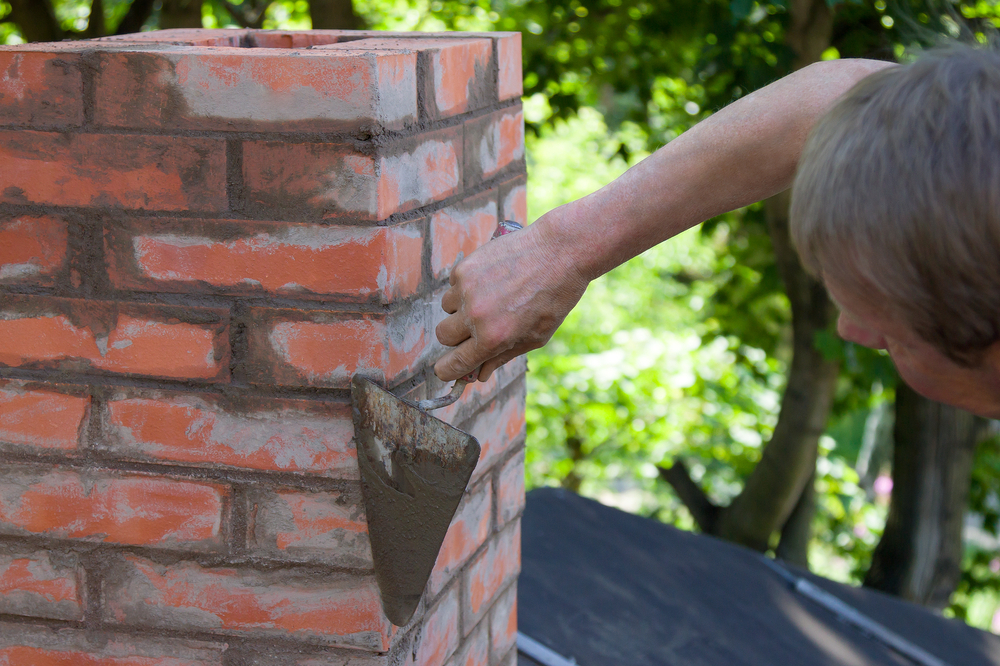
Chimneys are often the source of roof leaks. The problem may be with the chimney itself or the flashing or shingles around the chimney. If you notice visible cracks or gaps, deteriorating materials, or water damage around the chimney, contact a roofing contractor for assistance. These professionals can provide installation and repair services to stop leaks and prevent future problems.
Chimney Installations
Roofing contractors can install flashing around the chimney that incorporates seamlessly with your roofline and establishes a water-tight seal. Roofers also provide expertise for the installation of chimney caps. They can provide insight into the materials and styles that will work best to complement your home and provide effective protection. These installations involve several key steps:
- Inspecting the roof and chimney to determine the best solutions
- Taking precise measurements
- Selecting the materials
- Installing materials using appropriate tools and safety gear
- Inspecting the finished project
Chimney Repairs
Missing or loose shingles near a chimney can cause roof leaks. Damaged or improperly installed flashing around a chimney can also cause leaks. Roofing contractors can repair these issues in three steps:
- Inspecting the roof and chimney to identify the leak source
- Removing deteriorated or damaged materials
- Replacing previous materials with properly fitted shingles and/or flashing around the chimney to prevent future leaks
How Much Does it Cost to Repair or Add a Chimney?
Chimney repair costs vary depending on the project type and chimney accessibility, among other factors:
- Average cost of a chimney repair: $700
- Typical price range of chimney repair: $150-$7,000
- Average chimney cap installation cost: $335
Learn more about chimney installation and repair.
Skylights
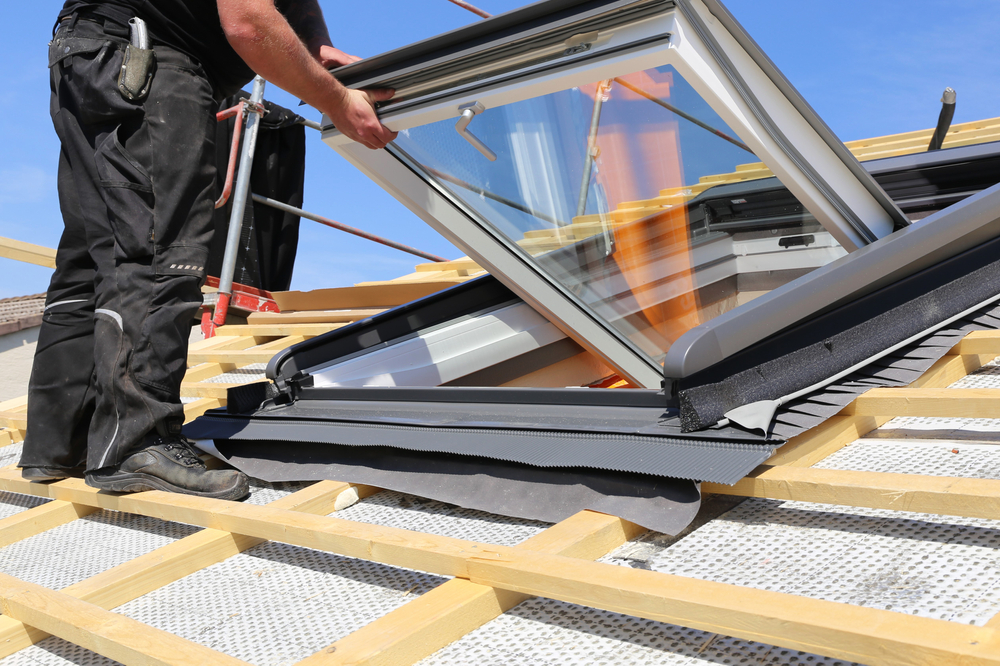
Energy-efficient skylights can provide enhanced aesthetics and reduced costs for lighting, cooling, and heating. However, they require proper installation and maintenance to deliver leak-free performance. Roofing contractors can assist with professional skylight repairs and quality installation.
Skylight Installation
Roofing contractors have the expertise to install skylights for maximum efficiency. They can determine the best location for the skylight, install the unit, and ensure proper sealing to prevent leaks. Skylight installation can take between one and three days and involves the following steps:
- Planning where the skylight will be installed
- Locating and marking the rafters
- Outlining the location on the interior and exterior
- Prepping the roof for the installation by removing shingles
- Cutting the opening in the roof
- Installing the skylight
- Installing shingles and flashing around the skylight
- Replacing insulation and repairing drywall
- Inspecting the completed project and finalizing any required documentation
Skylight Repair
Skylights used to last eight to 15 years. However, today’s skylights can last 20 to 30 years. During that lifespan, normal wear and tear can create a need for repairs. Common issues include damaged or worn flashing, poor installation, and leaking seals. Roofing contractors can provide the necessary maintenance and repairs on skylights and prevent water damage. Skylight repairs may involve the following steps:
- Inspecting the skylight and surrounding roof
- Determining necessary repairs
- Removing any damaged materials
- Installing new flashing, shingles, and/or skylight to stop leaks and prevent future issues
- Completing an inspection and any required documentation of the finished project
How Much Does it Cost to Add a Skylight?
The costs to install and repair skylights can vary significantly depending on the type and scope of the project:
- Typical price range for skylight installation: $1,000-$3,000
- Average skylight installation cost: $1,800
- Typical price range for skylight repairs: $100-$1,000
- Average skylight repair cost: $350
